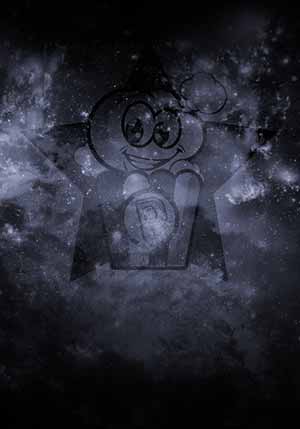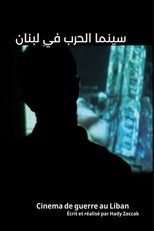Hady Zaccak
¿Quién es Hady Zaccak?
Since 1997, he has written and directed more than 20 documentaries, which have been broadcast on several television channels in Lebanon, the Arab world and Europe and presented/awarded at several film festivals around the world. Four of his films “Ya Omri-104 rides”, “A History Lesson”, “Marcedes” and “Kamal Jumblatt, witness and martyr” were also screened in theaters in Beirut. Hady Zaccak uses documentary to bring history to life, record the present, preserve memory and film metamorphoses and stagnation.
After writing a book in French on the global history of Lebanese cinema "Lebanese cinema: itinerary of a cinema towards the unknown" (1929-1996)" (Dar-el-Machreq -1997-Beirut), he continues his explorations the history of cinema in Lebanon with two documentaries "Lebanon through cinema" and "War cinema in Lebanon" (2003). Over the years, he has filmed the constant metamorphosis of Beirut "Beirut…Points of view" (2000) and "Taxi Beirut" (2011)) while discovering other Arab capitals "Sindbad in Baghdad" (2003) and "Taxi Sana'a" (2012). He investigated for television on the place of religion and religious groups in the Middle East from Lebanon, in Egypt and Iran “The Neo Missionaries” (2004) – “The Copts” (2004) – “The Shiites” (2005)
He studied the Palestinian cause with “1000 and 1000 Nights” (1999) and “Refugees for Life” (2006) and then documented the 2006 war in Lebanon and its social and environmental repercussions with 4 films: “The War of peace” (2007) - “The oil spill in Lebanon” (2007) - “The Shiite echoes of Lebanon” (2007) and “Sunni echoes of Lebanon” (2008). “Honeymoon 58” (2013) and “Kamal Jumblatt, witness and martyr” (2015). In 2017, he presented “Ya Omri” (“104 wrinkles”) where he addressed the theme of memory through the portrait of his grandmother. After several years of research, HZ published a new book “The Last Film Screening” in 2021, exposing the social, political and cultural history of Tripoli through its cinemas. His following films received awards: “Ya Omri” (“104 wrinkles”), “Kamal Jumblatt, witness and martyr”, “Marcedes”, “A history lesson”, “The oil spill in Lebanon”, “1000 and 1000 Nights"
Alongside his work as a filmmaker, Zaccak has been a professor at IESAV-Saint Joseph University of Beirut since 1998. He teaches courses in film writing and directing, cinema history and film genres. He also gives workshops on documentary and cinematographic culture in several regions of the Arab world (Lebanon-Jordan-Oman-Egypt) and in Africa (ISMA, Benin). Hady Zaccak is also the founder of ZAC films.
Trabajos destacados
Géneros más habituales en las películas de Hady Zaccak
Series
Sin informaciónCompañeros de trabajo recientes de Hady Zaccak
Las imágenes y retratos de actores y actrices mostrados en este sitio web son obtenidos de la base de datos pública de The Movie Database (TMDb), utilizada bajo los términos y condiciones de dicha plataforma. En caso de que alguna imagen o fotografía sea incorrecta, ofensiva, o pueda infringir derechos de imagen o copyright, puede ser editada o eliminada directamente en TMDb. Esto provocará su eliminación automática en este sitio web. Adicionalmente, si usted desea solicitar la eliminación de una imagen directamente en nuestro sitio web, puede utilizar el formulario de contacto ubicado al pie de la página. Atenderemos su solicitud de manera expedita y tomaremos las medidas necesarias para garantizar el cumplimiento de los derechos aplicables.
The images and portraits of actors and actresses displayed on this website are sourced from the public database The Movie Database (TMDb), used in accordance with its terms and conditions. If any image or photograph is incorrect, offensive, or may infringe image rights or copyright, it can be edited or removed directly on TMDb. This will automatically result in its removal from this website. Additionally, if you wish to request the removal of an image directly from our website, you may use the contact form located at the bottom of the page. We will promptly address your request and take the necessary measures to ensure compliance with applicable rights.







